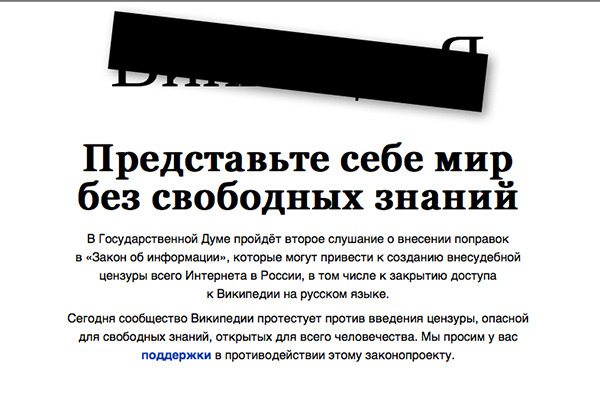Russian Duma passes controversial censorship bill
Ryan Martin / 13 years ago

The Russian Parliament, or Duma, has passed a new censorship bill leaving liberty activists fuming. The new internet blacklist law was originally proposed to censor and block “Harmful information” and naturally there was much uproar about this, since what is harmful information to the government – wikileaks-style outbreaks of information? However, after fierce debate that phrase was amended and has now resulted in a clearly defined set of reasons why something might be censored. Web pages which:
- Advocate Suicide
- promote Substance abuse
- encourage dangerous behaviour
- link to or show child pornography
Are all eligible to be shut down. However, critics are saying that the blacklisting of “not-for-children” websites will be used to censor the internet and restrict freedom. Many critics are saying the government may use the new bill to censor anti-government murmurings and prevent “dangerous ideas” of democratic reform from spreading.
The bill also looks set to introduce a non governmental watchdog to deal with monitoring the web for potentially harmful content and request hosting companies to restrict access to those pages. If hosting companies refuse, the page would then become blacklisted.
The bill didn’t go through unnoticed, there was a 24hour blackout of the Russian Wikipedia site, which raised significant concern over the matter. Some of Russia’s largest websites have spoken out against the censorship including the huge search engine Yandex who responded by crossing out the word “everything” from its logo which reads “you can find everything”. The company believe this bill will pave the way to censorship of the internet and stifle free speech which is apparently clear from how quickly the bill was implemented.
We think it’s necessary to maintain the balance of public interests and also consider technological characteristics of the internet, that’s why a review of the draft law must be postponed, with the legislation openly discussed,” said Yandex’s chief editor, Elena Kolmanovskaya, in the statement.
Some are saying it won’t be long before Russia’s gets an equivalent to the “Great Firewall of China”. What do you think of the new Russian censorship bill?



















